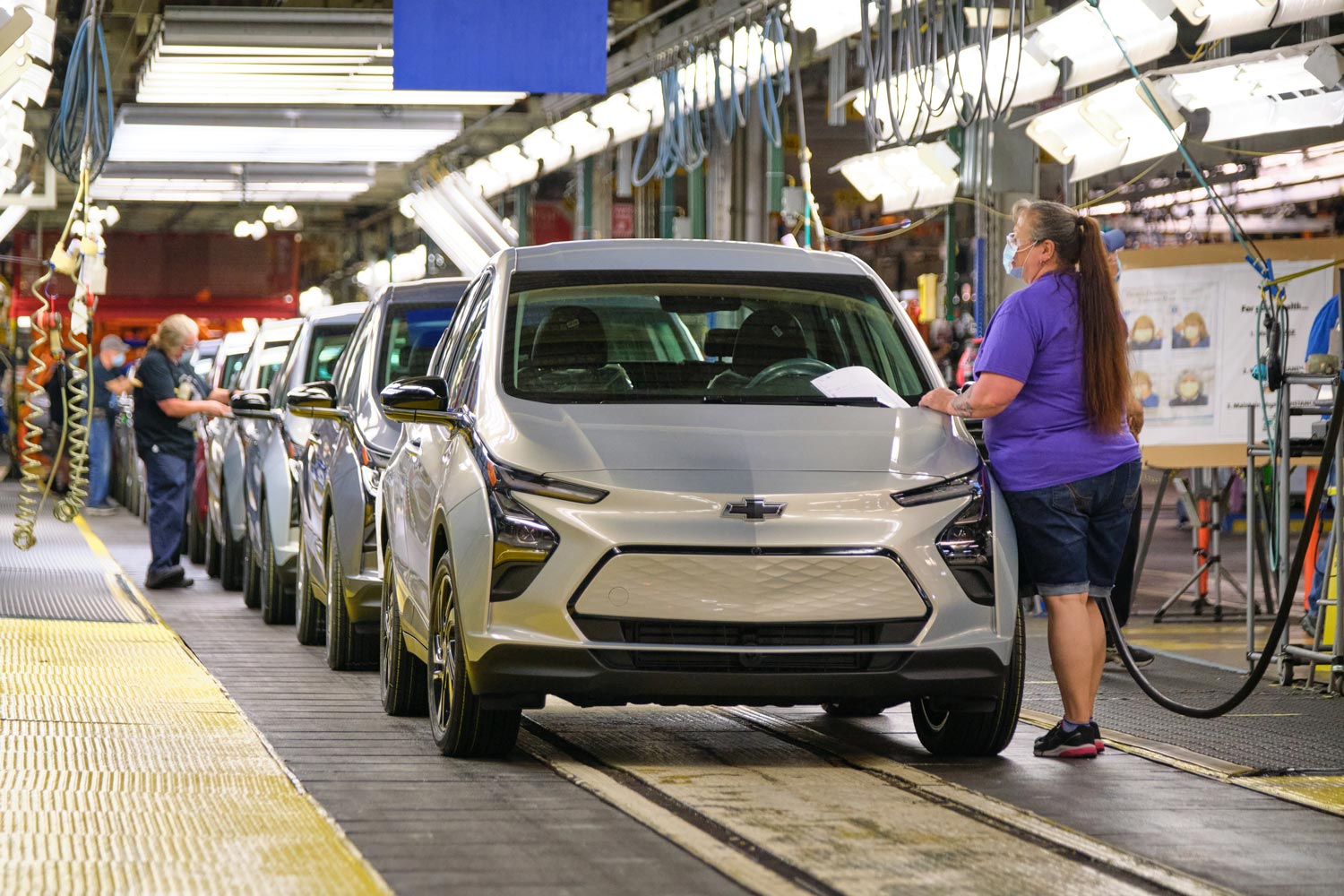3 Ways the UAW Strike Could Impact Car Shoppers
An extended strike by unionized auto workers may result in fewer new vehicles and parts, and could drive up used car prices.
 Chevrolet
Chevrolet
Updated on October 4, 2023
More than 25,000 members of the 150,000-person United Auto Workers (UAW) union — who assemble domestic vehicles and parts for carmakers including Ford, General Motors, and Stellantis (Dodge, Jeep, Ram, and Fiat) — are part of a strike that began at midnight Sept. 14.
The initial strike action hit three facilities: Ford’s Michigan Assembly Plant in Wayne, Michigan, where the company builds the Ford Bronco and Ranger; GM's Wentzville Assembly facility just outside of St. Louis, Missouri, where Chevrolet Express/GMC Savana cargo vans and Chevrolet Colorado/GMC Canyon midsize trucks are built; as well as Stellantis’ Toledo Assembly Complex in Ohio, where Jeep Wranglers and Gladiators are manufactured.
Since then, UAW leadership expanded its strike to almost 40 locations in 20 states, targeting General Motors and Stellantis facilities and parts distribution centers from Oregon to Florida. Strikes also hit Ford's Chicago Assembly Plant, where Ford Explorer and Lincoln Aviator SUVs are made, as well as GM’s Lansing Delta Township plant in Michigan, which makes the Buick Enclave and Chevrolet Traverse.
On Sept. 29, UAW president Shawn Fain said Stellantis will be spared additional strikes as the European/North American carmaker had made significant progress in addressing union demands.
According to Reuters, the UAW is seeking wage increases of 36 percent, plus cost-of-living increases, a 32-hour work week and the restoration of pension benefits to all workers, as well as ending the use of temporary workers.
Less Choice
For consumers and new car buyers, the impacts of a longer strike could be felt on dealer lots. Ford has struggled to keep up with orders of its popular Bronco throughout the post-pandemic period due to supply chain issues. An extended plant shutdown will make it even harder for buyers to get their vehicles.
So far, the plants targeted by the UAW strike produce popular SUVs and pickup trucks.
Used Car Prices Could Increase
The U.S. has already experienced an increase in used car prices since the COVID-19 pandemic began three years ago. While prices for used cars have been declining this year, according to values reported by wholesale vehicle auction company
According to an analysis of inventory data by
Replacement Parts Could Become Sparse
More than just the manufacturing of cars, the UAW strike's larger impact will be felt in the availability of replacement parts. Those nationwide parts distribution centers are critical for providing parts to dealerships for routine maintenance, as well as replacement parts for body shops.
The strike comes in the wake of an already challenging situation sourcing parts for new and used vehicles as a result of pandemic-related shortages.
Written by humans.
Edited by humans.
 Andy Stonehouse
Andy StonehouseAndy Stonehouse literally fell into the world of auto writing while working as a ski-town journalist, and has not looked back since. A childhood spent dealing with the eccentricities of a 1976 MG Midget has made any subsequent auto experience a more safe and reliable drive. He has been blessed with nearby mountain trails and snowy roads in Colorado to do TV-adventure-styled test drives on a weekly basis.
Related articles
View more related articles